
Latest Coronavirus Disease COVID 19 News and Research
Study evaluates how travel bans help reduce the spread of COVID-19
With the reopening of flights during the summer holiday season in Europe, many countries have started to see an increase in COVID-19 infections.
Oxford University and ZOE join forces to widen access to COVID-19 treatment trials
Oxford University and the COVID Symptom Study app are joining forces to widen access to two clinical trials of potential treatments for COVID-19.
Cloth face masks have potential to reduce the transmission of SARS-CoV-2 viruses
A literature review coordinated by Karolinska Institutet in Sweden and McMaster University in Canada demonstrates that cloth face masks provide clinically useful levels of filtration, which has the potential to reduce the spread of viruses such as SARS-CoV-2.
Oxford Nanopore Technologies partners with UK Government to roll out LamPORE, a new generation of COVID-19 test
Oxford Nanopore today announces an agreement with the UK’s Department of Health and Social Care, to roll out its novel LamPORE test.
Researchers identify transferrin as potential contributor to COVID-19 severity
SARS-CoV-2 is the coronavirus that causes COVID-19. It is currently not known why some individuals develop only mild or no symptoms when infected, whilst others experience severe, life-threatening forms of the disease.
Immune system's oldest branches may underpin COVID severity
One of the immune system's oldest branches, called complement, may be influencing the severity of COVID disease, according to a new study from researchers at Columbia University Irving Medical Center.
What seniors can expect as their new normal in a post-vaccine world
Imagine this scenario, perhaps a year or two in the future: An effective COVID-19 vaccine is routinely available and the world is moving forward. Life, however, will likely never be the same — particularly for people over 60.
Stabilized prefusion spike vaccine candidate induces powerful immune response
A new research paper by scientists at Janssen Vaccines & Prevention BV, in the Netherlands and published on the preprint server bioRxiv* is based on the assumption that an effective vaccine against these infections will induce neutralizing antibodies and an immune response favoring Th1 immunity.
Dexamethasone should be a standard drug in severe COVID-19
Many scientists have explored the use of new as well as already approved drugs for this condition, and one of the very few promising leads is dexamethasone. Dexamethasone is a corticosteroid, which has been reported in some earlier studies to reduce mortality in these patients by 18% and 36% in COVID-19 patients who are on oxygen and ventilators, respectively.
SARS-CoV-2 spike protein recognized by innate immune receptors in a glycan-dependent way
The spread of the severe acute respiratory syndrome coronavirus 2 (SARS-CoV-2) depends on its ability to infect new host cells following its replication and release from infected cells. This pivots on its ability to bind to cell surface receptors like the ACE2 enzyme.
Severe fatigue common in COVID-19, independent of disease severity
Patients with severe acute respiratory syndrome coronavirus 2 (SARS-CoV-2) infection often complain of fatigue, but now a new study shows that it also causes severe and frequent fatigue in those who recover after mild illness too.
The race to a coronavirus vaccine
As the number of coronavirus disease (COVID-19) cases skyrocket to a staggering 18 million, the race to attain vaccine approval is on. More than a hundred candidate vaccines are being developed and tested to prevent infection with the severe acute respiratory syndrome coronavirus 2 (SARS-CoV-2). Now, many vaccine candidates are undergoing human stage 2 and 3 trials to prove their efficacy and safety.
There could be 7 million unplanned pregnancies because of COVID-19
The coronavirus pandemic has rippled across the globe, infecting nearly 18 million individuals worldwide to date. Though the coronavirus disease (COVID-19) affects people from all walks of life, women and girls may experience devastating effects of the outbreak.
School children unlikely to play a significant role in COVID-19 spread, says Finnish study
A study conducted by researchers in Finland suggests that children who are exposed to severe acute respiratory syndrome coronavirus 2 (SARS-CoV-2) in schools are unlikely to transmit the virus further and play any significant role in the spread of coronavirus disease 2019 (COVID-19).
Pre-COVID-19 coronavirus antibodies fail to neutralize SARS-CoV-2
Researchers in Austria have shown that antibodies with potent neutralizing activity against a well-established seasonal coronavirus had no neutralizing activity against severe acute respiratory syndrome coronavirus 2 (SARS-CoV-2).
New bivalent vaccine delivers robust cell-mediated and humoral immunity against SARS-CoV-2
In a groundbreaking bioRxiv study, US researchers demonstrate the capability of next-generation bivalent human adenovirus serotype 5 (hAd5) vaccine for inducing both cellular and humoral immunity against severe acute respiratory syndrome coronavirus 2 (SARS-CoV-2) – using both an S protein sequence optimized for cell surface expression and a conserved nucleocapsid antigen designed to be transported to the endosomal subcellular compartment.
Synthetic riboregulators detect SARS-CoV-2 genome parts in 40 minutes
By exploiting the tools of synthetic biology, the researchers from Turkey have successfully developed a de novo riboregulator system for rapidly detecting the presence of the severe acute respiratory syndrome coronavirus 2 (SARS-CoV-2) genomic material. Their paper is currently available on medRxiv preprint server.
Study reveals attack rate of COVID-19 on trains
A study by scientists from the University of Southampton has examined the chances of catching COVID-19 in a train carriage carrying an infectious person.
FDA authorizes first two COVID-19 serology tests
Today, the U.S. Food and Drug Administration authorized the first two COVID-19 serology tests that display an estimated quantity of antibodies present in the individual's blood.
Meta-analysis shows 57% mortality reduction with convalescent plasma in COVID-19
Now, a new study published on the preprint server medRxiv in July 2020 reports that an older treatment modality, namely, the use of convalescent antibody-rich plasma, brings down the mortality rate in hospitalized COVID-19 patients by an astonishing 57%. This adds evidence for the use of convalescent plasma in the treatment of high-risk patients.
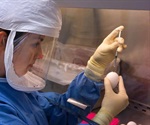


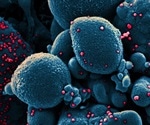
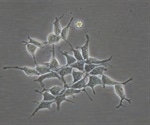
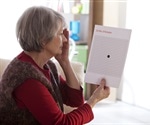

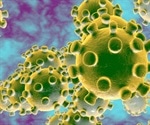
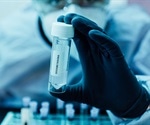
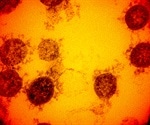
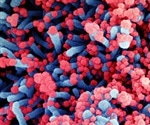
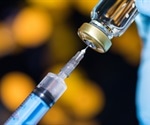
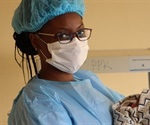
_62a27c3953bd479096a93a5165e6ce15-150x125.jpg)
_8421a59ab9e8408b98d536115c6b538f-150x125.jpg)
_b0ead9ed431e4f7aa3b0c6838db4e7c0-150x125.jpg)
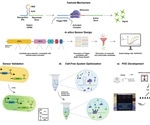

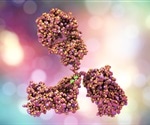
_119063aa626d4bbfbbebcfa8638a9ec9-150x125.jpg)





















.png)












No hay comentarios:
Publicar un comentario